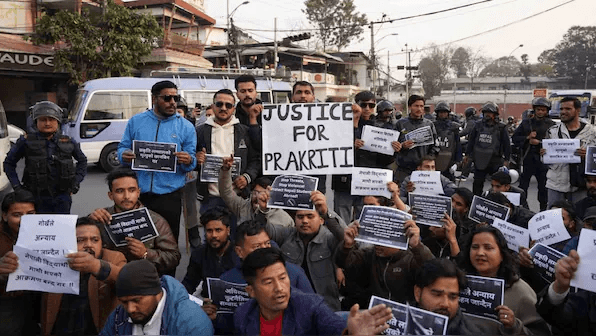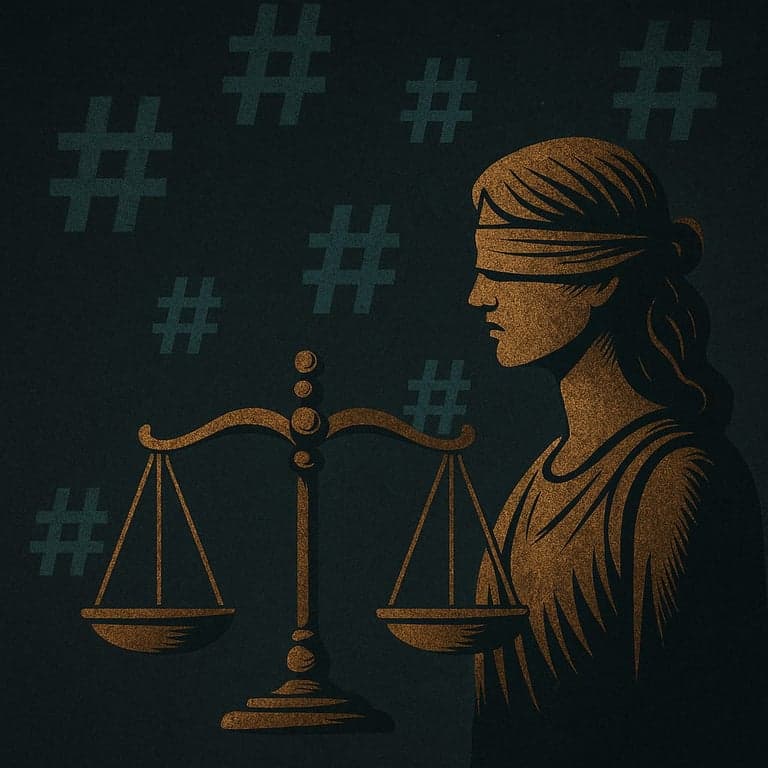
On Monday, 9th December, 34-year-old AI engineer Atul Subhash from Bengaluru tragically took his own life. Before his death, he sent a 24-page suicide note to several recipients and recorded a one-and-a-half-hour-long video, which subsequently went viral on social media. In the video, Subhash accused his wife, Nikita Singhania, and her family of abetting his suicide. He also sent a three-page letter to President Droupadi Murmu, a letter to the Chief Justice of India (CJI), and left a mysterious gift for his four-year-old son to be opened in 2038.
In his suicide note, titled "Justice is Due" on every page, Subhash detailed his wife’s alleged abusive behaviour, false accusations, and extortion. He claimed his wife’s family harassed him and demanded exorbitant amounts of money under the guise of maintenance for their son. Despite earning Rs 84,000 per month, Subhash paid Rs 40,000 in child support while Nikita, who worked at Accenture, demanded an additional Rs 3 crore. He alleged that these financial demands, coupled with being barred from seeing his son for three years, drove him to despair. Further, he accused Nikita of filing nine false cases against him and his family, including allegations of murder and unnatural sexual acts.
Subhash also revealed the mental toll these accusations took on his elderly parents. In his video, he stated he was ending his life to spare them further suffering, saying, “I don’t want to be a burden to them.” He claimed his wife once instigated him to commit suicide in a courtroom, in front of Principal Family Judge Rita Kaushik, who allegedly laughed at the comment and demanded a bribe. Subhash accused Judge Kaushik of corruption, claiming she asked for Rs 5 lakh to close the case. He further alleged that an officer in her courtroom, Peshkar Madhav, collected bribes of at least Rs 50 from every individual entering the court.
Subhash’s family issued emotional statements following his death. His father equated his son’s suffering to murder, saying, "Torturing someone is the same as killing.” His mother recounted how Subhash hid his pain from them, and his brother filed an abetment to suicide case against Nikita and her family. Nikita’s lawyer reportedly admitted he had stopped representing her, believing her accusations were false.
On 14th December, Nikita, her mother Nisha, and her brother Anurag Singhania were arrested and remanded for 14 days in judicial custody at Parappana Agrahara Central Prison. During the investigation, Nikita denied the allegations and claimed she had been living apart from Subhash for three years. She argued, “If I harassed him for money, why would I stay away from him?” She also reiterated her earlier claims of harassment during their marriage and referenced a police complaint she filed in 2022 accusing Subhash of dowry-related abuse.
The suicide sparked widespread outrage on social media, with hashtags like #JusticeForAtulSubhash trending and demands for accountability against Judge Kaushik. The Ministry for Law and Justice issued a statement on X emphasising the impartiality of family courts and their role in reconciliation, but public anger remained. Accenture, where Nikita worked, faced backlash with users demanding her termination and accusing the company of being complicit. In response, Accenture locked its X account to restrict public access.
In his suicide note, Subhash criticised the misuse of Indian laws meant to protect women, asserting that they had turned into tools of extortion. He expressed frustration at the lack of accountability within the judiciary and alleged that the system was weaponising innocent children to harm fathers. Addressing alienated fathers, he urged them not to remain silent, stating, “All these unjust but seemingly good intentions will lead everyone to hell.”
Subhash warned of the judiciary’s overreach, speculating that India risked becoming the first country under “judicial dictatorship.” He advocated for greater accountability, suggesting judges showing bias or engaging in activism should answer to parliamentary committees or resign to join politics.
The tragic case has reignited debates around family court biases, judicial accountability, and the mental health toll of prolonged legal battles. Subhash’s heartbreaking final words continue to resonate, highlighting the urgent need for reform in India’s family law system. However, it is crucial to examine both sides of any conflict with care before rushing to conclusions. The focus must be on demanding a judicial system that is equitable and just, ensuring that India becomes a safe and fair society for everyone, regardless of gender. This is not a battle of men versus women, but a collective fight against injustice to bring about meaningful reform. Only a united India can be a truly safe India.
Written by Rose Bachwani


